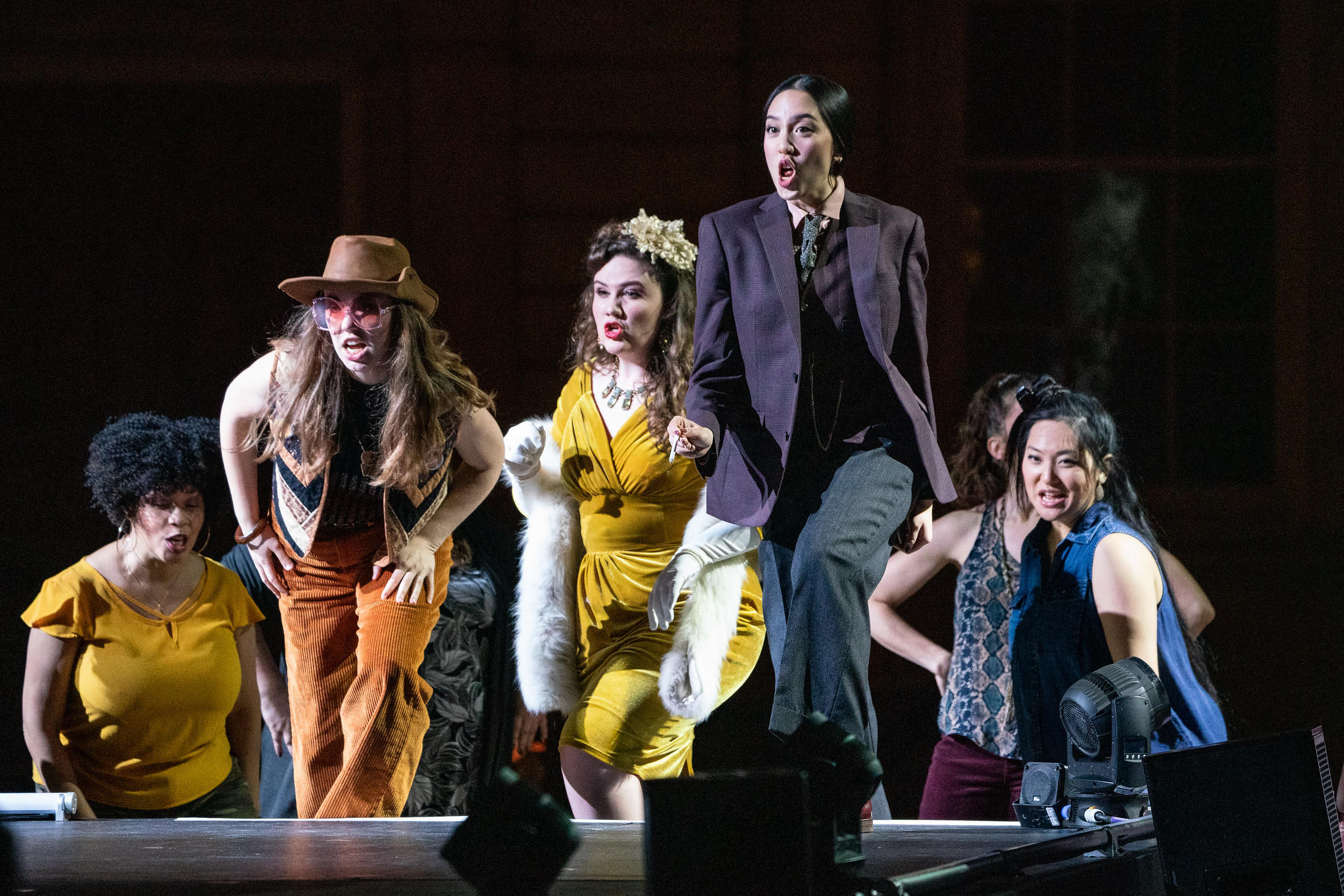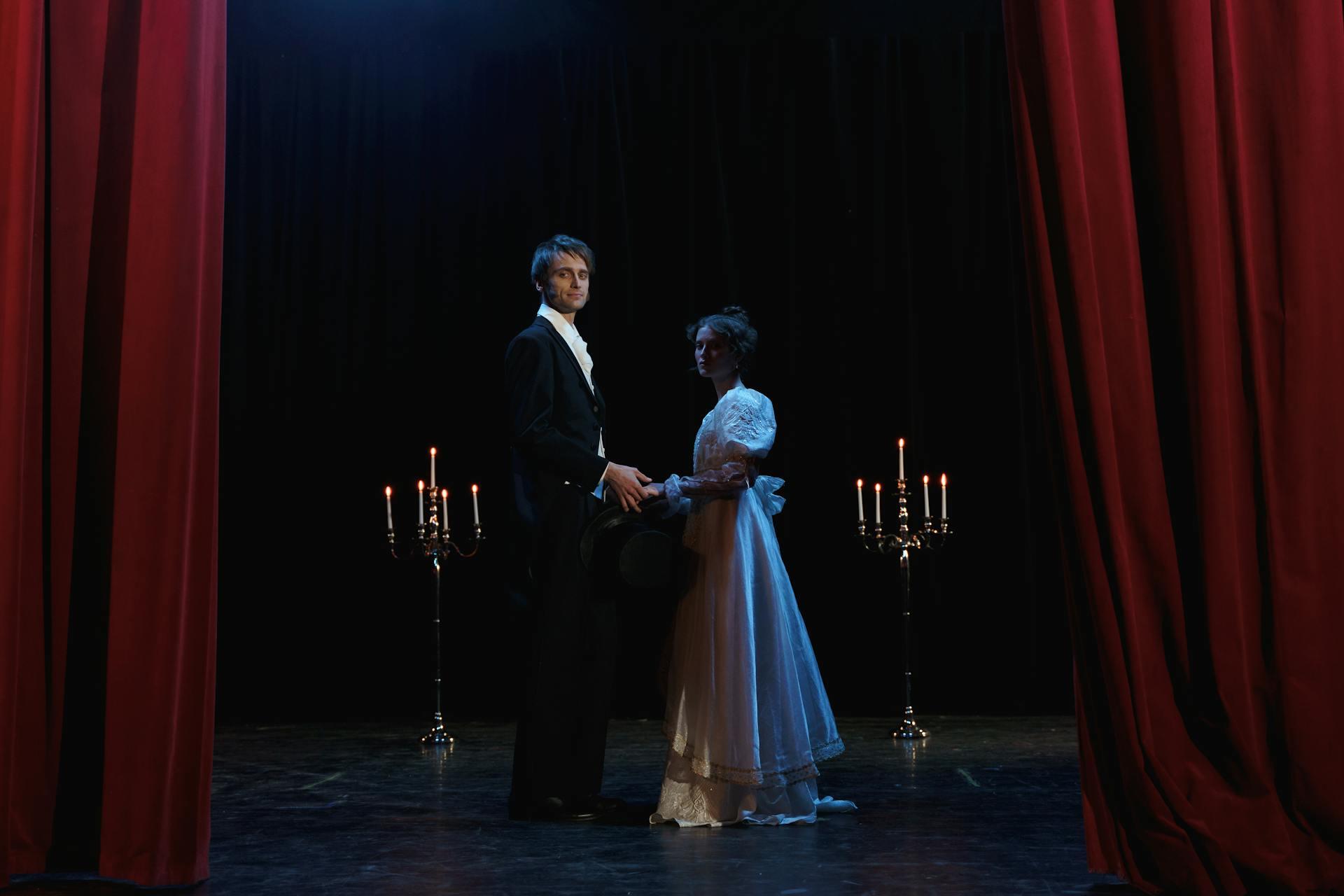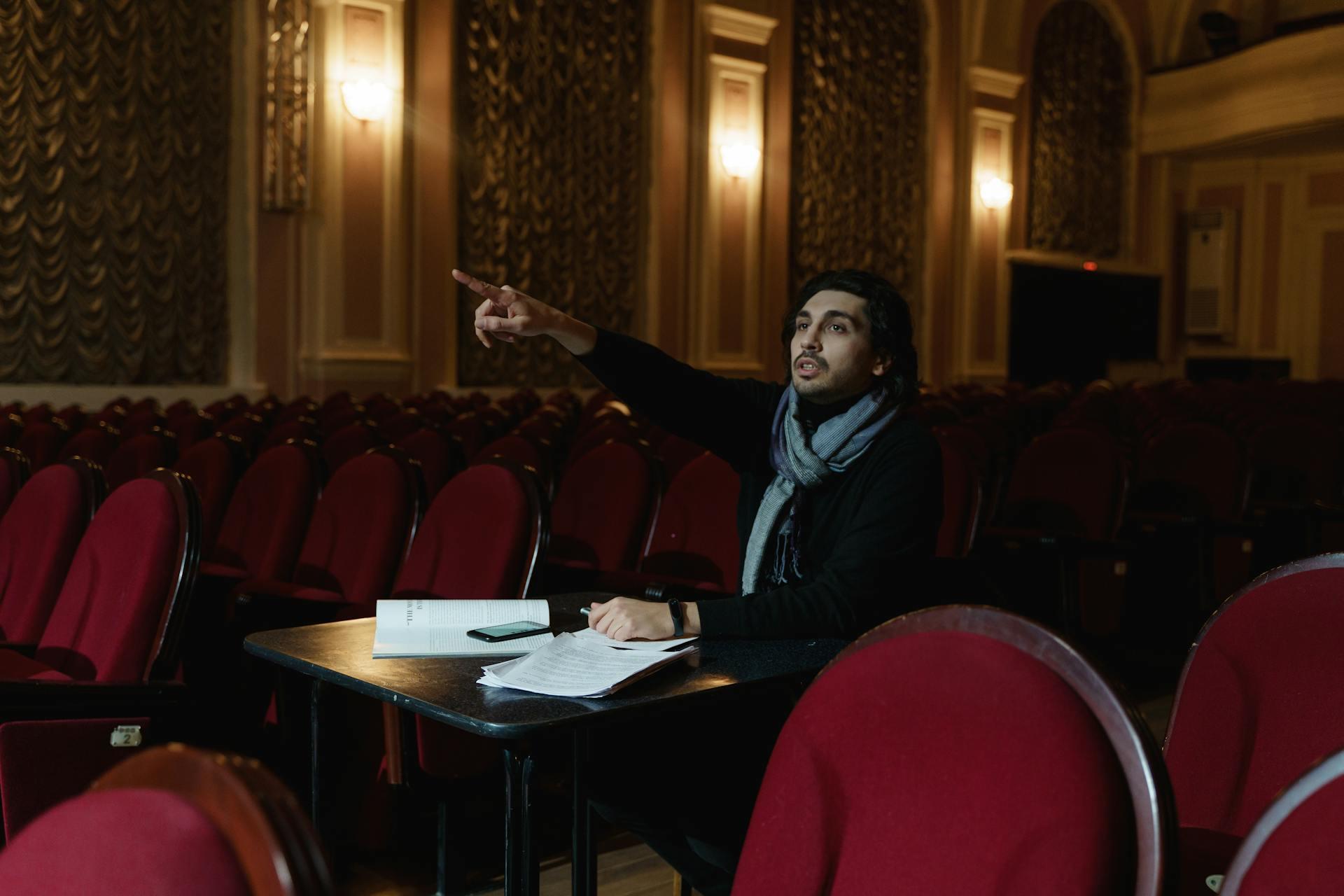Juilliard is one of the most prestigious schools in the United States, and even the world, so much so that even people who know nothing of the arts have heard of Juilliard.
All of Juilliard’s programs – Dance, Drama, and Music – are exceptional, having a reputation for excellence. So what makes Juilliard’s drama program, specifically, worth the hype? And how can you increase your chances of acceptance into the selective institution? Find out the why and how of attending Juilliard’s acting training.

What Is Juilliard and What Makes It So Prestigious?
Founded in 1905, originally as the Institute of Musical Art, Juilliard is one of the most respected institutions for performing arts education. Located in the heart of New York City at Lincoln Center, the school offers degrees in music, dance, and drama, drawing students from around the globe.
Juilliard’s drama division, established in 1968, quickly earned a reputation for producing some of the finest actors in the world. The program emphasizes classical training, contemporary techniques, and hands-on performance experience, making it one of the best acting schools in New York and beyond.
Enrolled in the NYC location, you can find more than 800 students from 42 states and 50 countries in the college division (all majors). These students appear in more than 700 performances annually at the school’s five illustrious theaters.
Juilliard is located at the Lincoln Center for the Performing Arts, in the heart of NYC.
An International Reputation
The Juilliard School attracts students from all over the world because they know they can receive the best education in the performing arts. As one of the best acting schools in New York, and certainly the world (ranked number 1 by The Hollywood Reporter), it’s only natural that ambitious and talented actors from all over the world would be drawn to the institution.
The international reputation is so strong that in 2020, the school expanded by building its first expansion: the Tianjin Juilliard School in China. Students who attend the school will be recognized for their achievements across the globe.
Conservatory-Style Immersion
Unlike Liberal Arts programs, Juilliard is a Fine Arts school, which means there are little to no distractions. Liberal Arts programs require students to attend many classes like math, literature, science, history, and so on.
Juilliard has very few supporting Liberal Arts classes; in the final year (for the BFA program), students do not take any classes besides Drama. The Liberal Arts classes that are offered are more philosophic and artistic, like LARTS111: Ethics, Conscience, and the Good Life, or LARTS212: Citizenship, Art, and Politics, rather than typical classes like algebra or biology. MFA students do not need to take any Liberal Arts classes.

It’s All About the Art
Juilliard isn’t one of the best acting schools because they only accept applicants with high SAT scores. On the contrary, Juilliard primarily cares about an applicant’s talent, skill, motivation, and chance of success based on what makes a successful artist and actor. There is no minimum GPA requirement, and they do not require any standardized test scores for application.
What the Admissions Committee cares about are your qualities, your theater experience, and your hunger for the art.
Many Opportunities for Learning
In the acting track, Juilliard offers several learning pathways: BFA (Bachelors of Fine Arts), MFA (Master of Fine Arts), and Extension classes. These options allow students to take courses with Juilliard at many different points in their lives and careers, so the opportunity never truly passes by.
Financial Aid & Fully-Funded Opportunities
Most of the students in the BFA program receive substantial financial aid to help pay for their tuition and other costs, like housing, meals, and supplies for class.
Beginning in the 2024-2025 year, all 4 years of the MFA acting program are fully funded for all students, thanks to the funds pledged by Stephanie P. McClelland and her husband, Carter McClelland, plus producer John Gore and the Jacques and Margot W. Kohn Foundation, and several estates.
Previously, only the fourth year of the MFA acting program was fully funded. Fourth-year MFA students will still receive a living stipend in addition to the full tuition funding.
Juilliard's Academics and Program Structure
Juilliard’s acting programs focus on developing the whole performer. This includes:
- Voice and Speech: Training to improve diction, projection, and articulation.
- Movement: Techniques to enhance physicality and stage presence.
- Scene Study: In-depth exploration of dramatic texts to refine interpretation and performance.
- Performance Opportunities: Students participate in productions throughout their training, gaining practical experience in front of live audiences.
This holistic approach ensures that Juilliard graduates are well-rounded performers capable of thriving in theater, film, and television. Rather than focus on a particular method of acting, students at Juilliard can expect to learn a multi-faceted approach and develop their own unique styles.
BFA and MFA Programs
Both of the main Juilliard degrees in acting (Bachelor of Fine Arts and Masters of Fine Arts) are equally notable. In fact, they are almost the same program. Both the BFA and MFA students attend most classes together; they are not separated as with most other colleges and universities.
BFA students are required to take some Liberal Arts core and elective classes, while MFA students are not.
This setup makes Juilliard university unique among the best acting colleges; the mixture of less-experienced BFA students, MFA students who have already attended acting school previously, and MFA students with bachelor's degrees in non-acting disciplines all work together to create a nurturing environment full of different perspectives, perfect for personal and professional development.

Classes and Electives
For the BFA acting major, students are required to take some Liberal Arts classes in addition to their Drama and Professional Development classes. Both the BFA and MFA classes take the same core Drama subjects. Here are just a few examples of the types of classes in Acting and Drama studies offered to Drama students at Juilliard:
- DRAMA 131-141;631-641: Alexander Technique I
BFA and MFA students learn the Alexander Technique together. The technique focuses on the awareness of one’s body both in space and internally. - DRAMA 338;838: Suzuki
BFA and MFA students learn the Suzuki method, which is a physical technique that draws on practices such as ballet, traditional Greek and Japanese theater, and martial arts.
There are two impulses in theatre: to be frivolous or to make rules.
Tadashi Suzuki
- DRAMA 314-324;814-824: Scene Study III
BFA and MFA students continue to develop their scene skills from Scene Study I & II, including their ability to identify, personalize, and embody a character’s given circumstances and needs. - DRAMA 345-346;845-846: Acting on Camera I
Students in both the BFA and MFA programs learn how to translate their skills to be suitable for TV and film. Guest teachers from other disciplines may also share their knowledge and experience. This course contributes to Juilliard’s reputation as one of the best colleges for acting in film. - DRAMA 411-911: Actor Presentations
Students polish scenes to demonstrate their skills in a showcase for industry professionals from New York and Los Angeles. - DRAMA 626S: Methodologies of Directing
For MFA students only. This seminar examines scripts through different lenses including historical context.
Hand-picked Roles
To assist students with becoming an actor, Juilliard has a unique method for ensuring each student has a substantial amount of real-life experience in the theatre.
In their first two years, students are given roles in various plays that suit the student’s needs, rather than the play’s needs. This way, students are given the chance to explore and grow in roles they might not otherwise be cast in. These productions are minimal are are primarily for learning and practice purposes, but staff, other Juilliard students, and friends and family are invited to be in the audience.
In their third and fourth years, students are matched to roles that the play requires. Third-year productions are more serious and open to the public for viewing. Fourth-year productions are of professional quality and fully produced.
Students do not need to audition for these roles; instead, they are intentionally given throughout the year, ensuring each student has multiple opportunities to practice their skills.

Juilliard School Notable Alumni
There are many actors who went to Juilliard, which is part of the reason why the school has such a great reputation! Here are some of the incredible Juilliard alumni to know:
- Viola Davis
- Robin Williams
- Jessica Chastain
- Kelsey Grammer
- Christine Baranski
- Oscar Isaac
- Jessica Hecht
- Andre Braugher
- Anthony Mackie
- Adam Driver
- Laura Linney
- Oscar Isaac
- Sara Ramirez
- Elizabeth Reaser
- Samira Wiley
- Patti LuPone
As you can see, those who make it into this prestigious program often make a great name for themselves. If you also attend Juilliard, you will be placed on a path that is designed to help you reach your full potential.
Juilliard Tuition
Compared to other universities, the Juilliard School cost is surprisingly affordable!
For BFA students, tuition is $54,400. Of course, other expenses like room and board, meals, transportation, and school supplies mean the bottom line can be much more expensive.
Typically, about 90% of students who attend Juilliard in any major receive financial aid and/or grants.
Beginning in the 2024-25 school year, the MFA in Drama program is fully funded. This means students in the drama MFA program do not pay a penny for tuition. Students will still need to pay for other expenses. Fourth-year Drama MFA students will also receive a livable stipend.

How to Get Accepted Into Juilliard
Now, we come to the hard part of thinking about attending Juilliard: the Juilliard school acceptance rate. Because the program is so selective, it’s notoriously incredibly difficult to get in. Let’s break down the obstacles:
Typical Application Requirements
Like any other institute for higher education, Juilliard requires the following:
- High school transcripts and proof of graduation
- Two letters of recommendation
- Resumé pertaining to your acting and theater experience
- Application essay
- Optional essay (to explain a gap in your transcripts, why you want to pursue acting with little to no prior experience, etc)
These basic items help the initial application viewers decide if you’re a good fit for the program. Although they do not look at GPA or test scores, the Admissions Committee needs to be able to determine if you have the discipline and foundational knowledge required for the program.
The letters of recommendation are your chance to have your teachers, theatre directors, or professional contacts vouch for your character and suitability for the program. The essay is your opportunity to show in both content and style of writing who you are and why you’re suited for the program.
There is a $110 application fee, but you can apply for a waiver if you are experiencing financial hardship.

Requirements Specific to Acting School
Naturally, there is an audition process for Juilliard applicants. Auditions take place in January and February in New York, Chicago, and San Francisco.
For your audition, you should prepare:
- Four memorized monologues, each about 2 minutes in length
- One heightened text and one contemporary, plus two of your choice
- 16 bars of a song to sing a capella (you do not need to have a trained singing voice)
Additionally, you will need to submit a photo with your application, which is used to connect your audition with your other application materials. Thankfully, Juilliard does a superb job of explaining all the application requirements in detail on their website, including how the callback procedure works in each city.
How Hard Is It to Get Into Juilliard for Acting?
The Juilliard acceptable rate is extremely low: only about 10% of applicants earn a place in the program each year. Every year, only 8-10 BFA and 8-10 MFA students are accepted. This keeps class sizes small so that each student’s individual skills and talents can be developed. It’s great for accepted students and frustrating for those who don’t make the cut. The best way to get into Juilliard is to prepare thoroughly as far in advance as possible.
In auditions, the panel is most interested in applicants with a lot of passion and promise. A certain level of competence is required, but mostly, they want to see if you’ve got the stuff that makes a great actor. The program is meant to hone your skills and give you the tools you need to be a great actor. But in order to do that, you need quality raw material.
So, only the best of the best are given a seat in the class, making it incredibly difficult to get in.
How Can I Get Into Juilliard?
The best preparation starts as soon as possible: join your school and/or community’s theater program as soon as you can. Ideally, you’ll have started when you were a child, but joining in high school is better than not trying at all.
Pursue your own passion projects, like creating videos for YouTube (or just for yourself and your friends!), to explore your innate talents and try new things. Research acting techniques and start developing your own personal method (but know that you may have to unlearn bad habits if you do go to a professional acting school).
One of the best things you could do is hire a private acting coach. On Superprof, you can find thousands of acting tutors prepared to help you with online or in-person acting classes, so you can learn everything you need to do well in your auditions. But most of all, you need to find your inner passion and fuel it well!
Summarize with AI:















